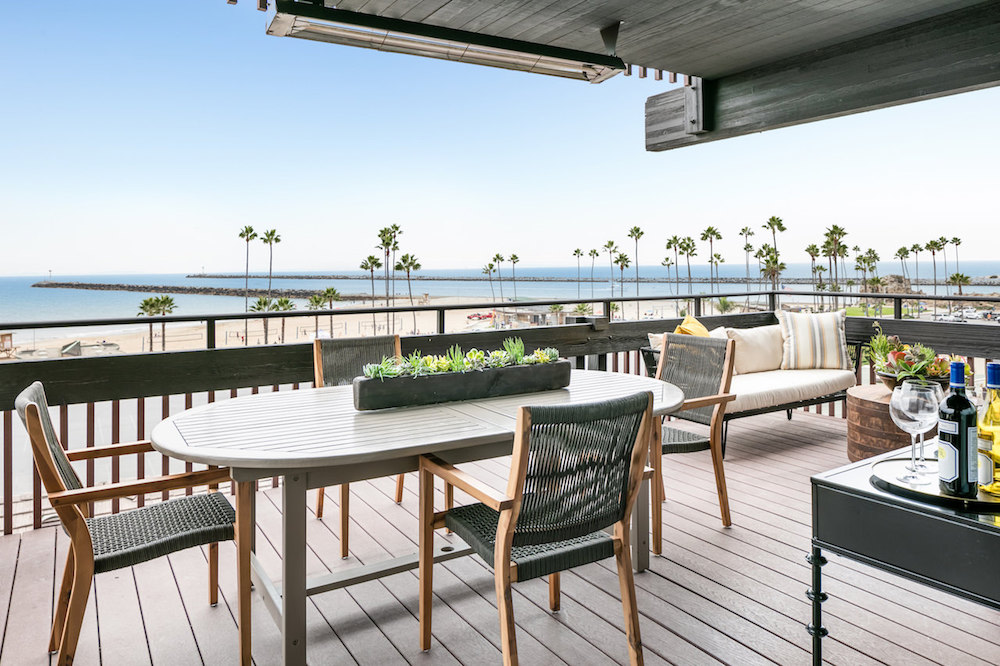Vacation Rental Investment Guide
Investing in a vacation rental is a major step for investors, as it can be very intimidating. Buying a vacation rental is a great first step, but it’s important to know how to get the most out of your vacation rental investment. Here are a few of the best questions and answers that will help make investing in rental properties easy for beginners and experts.
| You are reading an article from the Money & Investment section of our Ultimate Vacation Rental Business Guide.
See the other articles in this section below: ➜ Vacation Rental Investment Guide • Is a Beach House a Good Investment? |
How Do I Invest in Rental Property?
A vacation rental can bring in a good deal of money if you are wise about it and plan what you are doing. Follow these steps if you want to know how to invest in rental property.
Financing
One of the most important things to consider before investing in vacation rental properties is making sure that your finances are in order. Before you start to look into investing, make sure you know exactly what your credit score is, as well as how much money you will be able to invest including any loans you plan on using.
Coming to the table as a well-informed investor makes the entire process smoother so you don’t have to waste time with properties that are over or under your budget.
Location
The mantra of real estate is location, location, location—and it does matter. The location of your property is one of the most important aspects to consider. Walls can be torn down and built, electrical can be rewired, but nothing can be done to change or modify the location once you have selected it.
When you are investing in real estate vacation rentals you need to narrow down your options and what you are interested in. Look for high demand areas where there is a market for rental property. Having a monopoly of properties in a small or rural area might sound great, but there’s a reason there are no vacation rental properties 400 feet underwater in Callville, Nevada.
In-Depth Analysis
Once you have narrowed down the options of where you want to invest, you should always do your due diligence and do an in-depth market analysis to find out as much as you can about your potential investment.
Start by looking at how long homes in your price range stay on the market and the local demand for that market. This can change by season, so make sure you look at the annual demand rates in your area of interest to get a clearer picture of the market. There are times that you might want to hold off on making a rental investment by a month or two to have better options and control within the local market.
Find other rentals in the area and find out how much they are renting for. At this point, you can consider the profit margins that you can expect to make. In a very simplified example, if you are paying $2,000 each month for the mortgage payment, but will only be able to earn $2,100 a month from the rental, you will have to consider if the investment is worth it.
Glean as much information about the market as you can. Your goal is to prepare yourself for no surprises after you invest. You should not be shocked by the local Strawberry Days celebrating the town’s founding, the seasonal rush during the fall just for people to see the leaves change, or a high demand for one week in August when an annual convention sells out every single hotel room in the area.
Calculate Your Expected Annual Income and Expenses
If everything looks in order (there is a demand in the area and the numbers suggest you should expect a positive cash flow), dig a bit deeper. You can never conduct enough research or have too much information.
Income is dependent on the area you buy in, and you should expect to set the rental rate to be about 10-20% higher than your expected mortgage payments. In some high-demand areas, landlords are able to ask for more than the 10-20% expectation. Remember that you want to set a price that is profitable for you, but that doesn’t scare away prospective tenants.
Another important factor in this calculation is keeping in mind the downtime your property will have. Most vacation rentals are seasonal, which means you will have to face both the up and down seasons. During the busy seasons, you can expect a high demand which means you can increase rates and still have tenants, while in the offseason you might struggle to find any tenants, even at significantly reduced rates. Your downtime calculation should also include turnaround time. The best properties will typically take at least a day between guests to clean, tidy, and prepare for the next guest. Generally, between on and off seasons and maintenance breaks, you should expect a 25% vacancy rate.
Spend a Night in the Property
Provided all of the research and numbers work out and you are still interested, you should always consider spending at least one night at the property if possible. This provides you with personal experience and knowledge of the location and what needs to be done to the property to help it be a success.
How Do I Make Money on Vacation Rental Property?
The majority of your income as a property owner comes from the rent that tenants pay compared to your mortgage payments and any additional expenses or fees that you have to pay. As long as your tenants are paying more than the mortgage and expenditures, you get to keep the difference, and that is how to make money on vacation rental property.
This is a simplified explanation as there are taxes and fees involved, but the main determining factors of if a rental property is a good investment is determined by the rent your tenants pay versus the cost of maintenance and ownership.
Is Investing in Vacation Rental Property a Good or Bad Investment?
Vacation rentals are a real estate investment, and like many investments, there is risk involved. There are no guarantees or sure deals when it comes to real estate investment.
Because of the uncertainty of the market and the potential risks that you might be putting yourself in line for, it is important to do as much research as possible. It is important to understand all of the risks and dangers you are involving yourself with when you invest.
A common consideration when dealing with rentals is the 1% rule. Generally, if your return on investment (the monthly income of the rental divided by the purchase price) is 1% or higher, you have a successful rental property.
If you are looking to know if a rental property is a good or bad investment, the answer can be yes—but only if you do in-depth market research and come prepared. It can also be a bad investment if you rush into the market or make risky choices. You have to be aware of the tentative risk that you are taking and know that just as the market might boom and you can have great success, there might be a market crash or natural disaster that can complicate your investment.
Grand Welcome Can Help
If you are looking to get help with your investment in vacation rental properties, list your property with Grand Welcome. We can help you earn revenue with our easy and comprehensive management program. Contact us today to learn more about any of our properties, and we’ll be happy to help and answer any questions you have for the rental business.
If you are looking for a business opportunity in the vacation rental industry, Check out Grand Welcome Franchise’s vacation rental management franchise. No experience in this industry or no rental property is required. You can run your business at home on a computer and phone.
Over the last 10 years, we’ve set up systems that can make it easy for you to be a vacation rental property manager, and we’ve built a reputation for offering quality vacation properties. Contact us now to get a free franchise information kit and find out if you qualify. Get out of the rat race, and achieve financial freedom!



